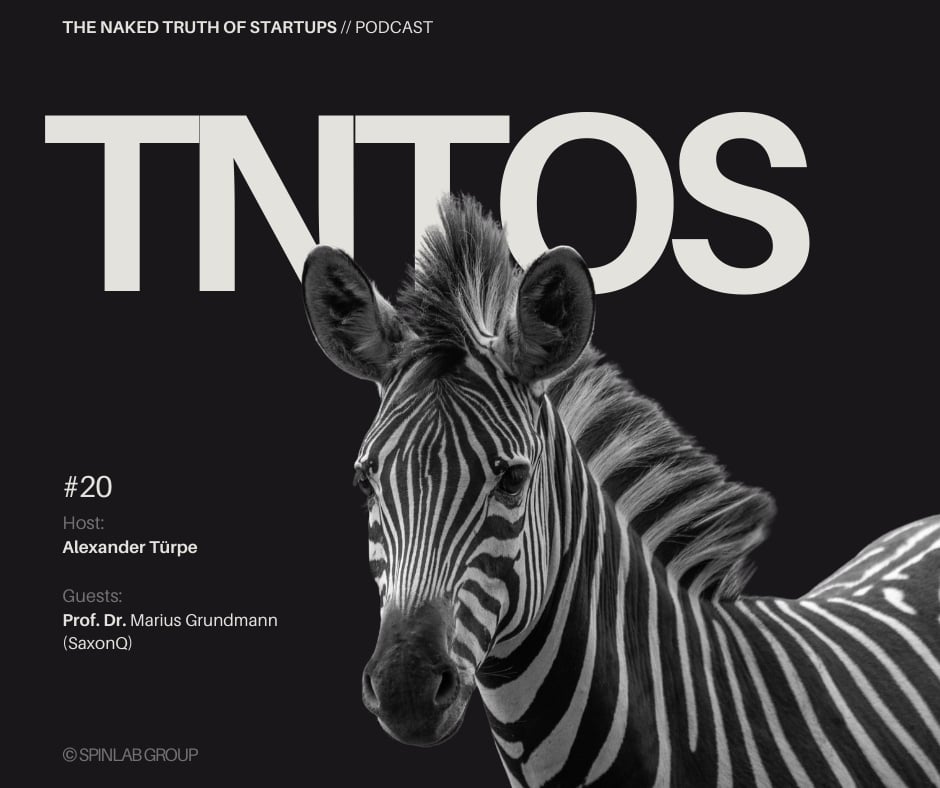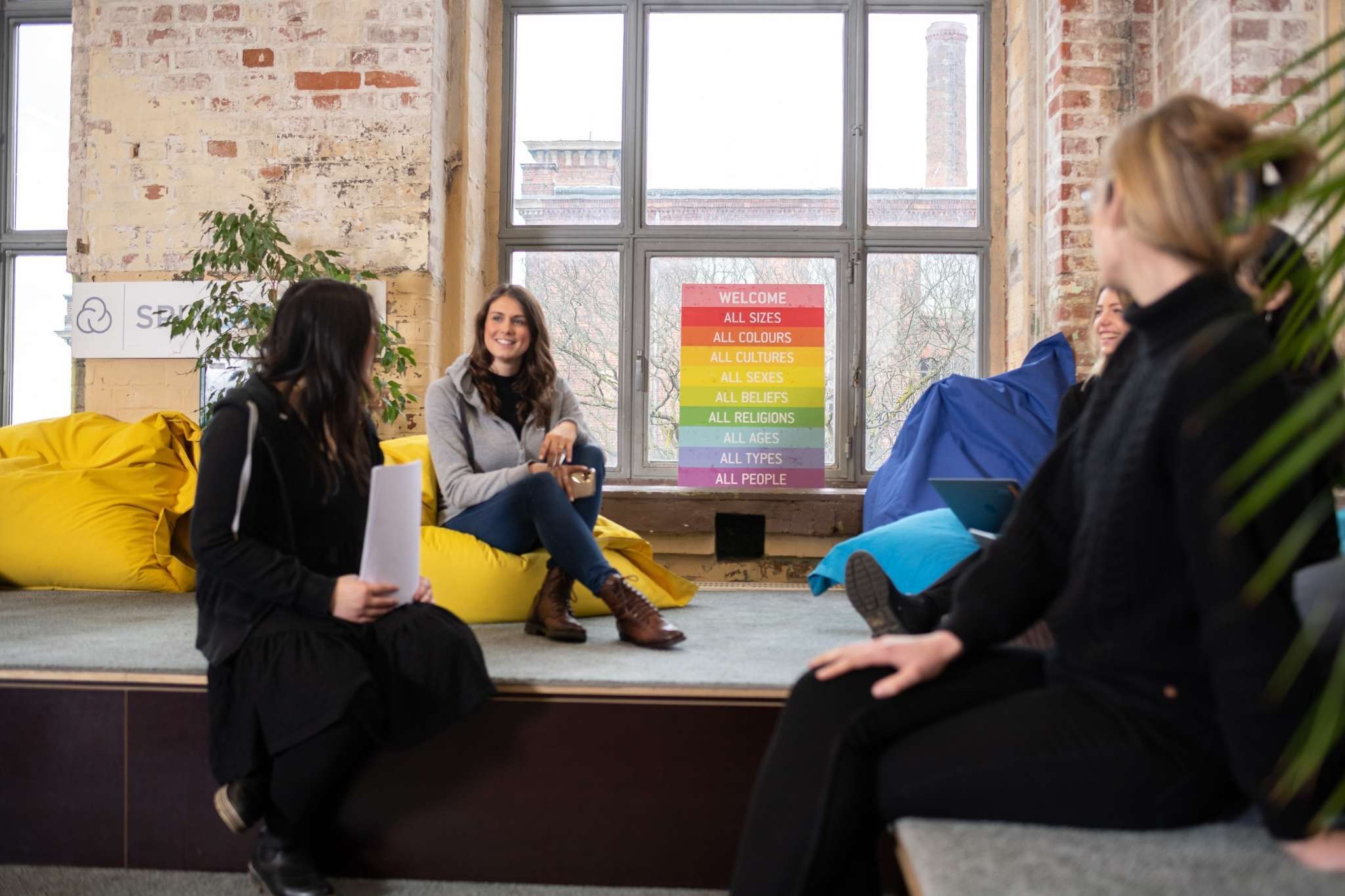“Fail fast, learn faster” - this is not only a common mantra in the startup cosmos, but also a bitter reality in many cases. The road to a successful startup is rocky, full of setbacks and failed ideas. But what if the reason for failure is not the product or the market, but the founder themselves?
At SpinLab, we've closely supported hundreds of startups in our acceleration program over the past ten years, and every year we receive thousands of applications. In the process, we've consistently noticed recurring specific characteristics in founders that immediately raise red flags for us. Behind failed startups there are often personal patterns that go unnoticed but become a major roadblock. Eric Weber, founder of SpinLab, analyzes eight founder characters.To put it simply, Eric Weber identified the following stereotypical personas.
Disclaimer:
1. Ingmar Inventor - The nostalgic tinkerer
Ingmar is over 65, a former engineer and full of inventiveness. In his basement, he has developed a revolutionary hardware idea that is set to change the world. The technology? He built it himself. The slides? Windows 95 vibes. Outside help? No, thanks.
Why Ingmar fails: Ingmar is so convinced of his solution that he allows neither feedback nor doubt. Venture capital remains a foreign word. But the technology does not deliver what it promises. Without a functioning product and with zero openness to support, his project remains exactly where it started: in the hobby room.
What Ingmar could do better: Ingmar has a strong ability to develop stories and communicate his ideas clearly. However, he should be open to external support and critical feedback. It is crucial to collaborate with other experts to improve the technology. In addition, he should not only focus on the technology, but also test the product for its actual functionality and obtain validation from customers at an early stage.
2. Sarah Scientist - The Scientist with a Vocation
Sarah comes from a university research background and her product is based on excellent scientific work, including several peer-reviewed publications. But her mindset remains academic: avoiding risks instead of taking them.
Why Sarah fails: Sarah avoids risk. Business plans, customer feedback, scaling? Better another study. She remains a researcher, even though she should be a founder. That prevents real market access.
What Sarah could do better: She needs an environment that embraces entrepreneurship. A strong business team could take her innovation out of the lab and into the world. To do this, Sarah needs to learn to let go and face reality beyond research.
3. Paul Parallel - The idea generator
Paul always has something going on. Today it's a new social media platform, tomorrow a supplement startup and the day after tomorrow perhaps a podcast. His ideas are fresh, his energy high. Unfortunately, one thing is missing: focus.
Why Paul fails: Paul jumps from project to project. As soon as the first hype dies down, he's on to the next thing. No product is finished, no team stays with it for long. So every idea is a good start, but never a real success.
What Paul could do better: Paul has what many don't: Creativity, charm, sales talent. But ideas are just the starting point, success requires perseverance. Instead of betting on the next trend, he should focus on one thing and implement it consistently. Deep work instead of constant fire.
4. Ines Impact - The Idealist
Ines wants to use a CO₂ footprint app to change consumer behavior and save the world. Her design is great, her motivation admirable. Unfortunately, nobody wants to use the app.
Why Ines failes: Ines has done what many idealists in the start-up scene do: she has turned her own convictions into a business strategy, forgetting that not everyone ticks like her. Customer needs? Market relevance? Monetization? For Ines, it's all about the big picture.
What Ines could do better: Instead of starting from idealism, she should think from the user's perspective. People need concrete motivations. Gamification or reward systems, visible success. And monetization? Must not be a taboo. If you want impact, you need reach and that only comes with a scalable business model.
5. Boris Business - The MBA professional
Boris has it all, at least on paper. MBA from a renowned business school, polished pitch deck, buzzword bingo in his sleep: Web3, metaverse, disruption. His idea? A platform for professional gamers, somewhere between blockchain and augmented reality. The exact function? Still unclear, but the vision sounds big.
Why he failes: Boris didn't found his company out of conviction, but out of analysis. His start-up is the result of trend screening, not a genuine passion project. He flies solo, has no tech background, but has a clear idea of how things should work. Deviations from the plan? Unwelcome.
What he could do better: His entrepreneurial toolkit is impressive, but it's only part of the game. What Boris lacks is an openness to perspectives beyond his own business bubble. The most important skill he needs to learn: Listening. Instead of wanting to control everything himself, Boris should build a team that complements him.
6. Harry the Hustler - The founder who overestimates himself
The prototype of “fake it till you make it”. Harry has already “exited” a startup (so he says), is constantly at events and supposedly has VCs on board. But the bubble bursts during due diligence: the figures are wrong, claims are exaggerated, the team is unstable. Overconfidence as a founder: “I recognized that I no longer had it under control.”
Why Harry fails: Behind the shiny surface, however, things soon get ugly. Harry sells more appearance than reality. MVP? Half-baked. User numbers? More wish list than reality. Investors realize during due diligence at the latest: something is wrong. The figures don't match the story, and suddenly it becomes clear that Harry has overestimated himself.
What he could do better: Harry needs to learn that a good product needs more than just attention. His talent for presenting is worth its weight in gold, but sustainable success is based on substance. If he focuses less on shining and more on digging, i.e. real user needs, reliable KPIs and a solid tech setup, he can retain trust in the long term.
7. Mira Micro, the microgmanager
Mira has built a well thought-out B2B SaaS product around financial planning that is data-driven, complex and thoroughly planned. She is smart, hard-working, can do everything and wants to do everything herself.
Why Mira fails: Mira checks every detail and optimizes until she lacks the energy for the next step. Delegating is difficult for her, giving up trust even more so. As a result, she loses time, focus - and, at some point, energy.
What Mira could do better: Mira brings everything to the table - but she can't let go. In order to scale successfully, she needs a team she trusts and the ability to prioritize. Not everything has to be perfect.
8. Laila Lifestyle, the indecisive one
Laila is living the digital nomad dream - beach, laptop, Shopify. Her plan: an e-commerce business with stylish sports products. The team is in place, the vision is right, but as soon as things get serious, Laila withdraws.
Why Laila fails: Laila has ideas, drive and a good network. But she doesn't have the staying power to overcome headwinds. As soon as things get tough, she loses focus. She quickly loses motivation at the first major challenges. The problem is not the market. It's how she deals with setbacks.
What Laila could do better: Success doesn't mean: always sunny. Laila has to learn to persevere when the going gets tough. Perseverance and adaptability are essential, especially in e-commerce. If you keep at it, you grow.
Time for an honest reflection
There are rarely just bad ideas behind failed start-ups. It is often personal patterns that become a stumbling block unnoticed. It is not the personality type that is the problem, but the failure to deal with it. Many of these behaviors arise from strengths, but if they are not balanced or questioned, they will topple over. Start-ups must not only look outwards - at the product, market and growth - but also inwards - at themselves and their team.
Founders should therefore ask themselves the following questions:
- What patterns slow us down without us addressing them?
- Where do we lack perspectives because certain voices in the team are given less space?
- How do we deal with criticism, uncertainty and genuine changes of direction?
Founding not only means creating something new, but also constantly questioning yourself. Those who are prepared to follow this path consistently not only build better products, but also create the basis for a team that is sustainable in the long term.






/RootCamp_Logo-Ecosystem.png?width=200&name=RootCamp_Logo-Ecosystem.png)
/Bitroad_Logo-Ecosystem.png?width=200&name=Bitroad_Logo-Ecosystem.png)



/White%20Versions/stadt_leipzig_white.png?width=130&name=stadt_leipzig_white.png)
/lfca_white.png?width=119&name=lfca_white.png)

/White%20Versions/sachsen_signet_white.png?width=65&height=79&name=sachsen_signet_white.png)